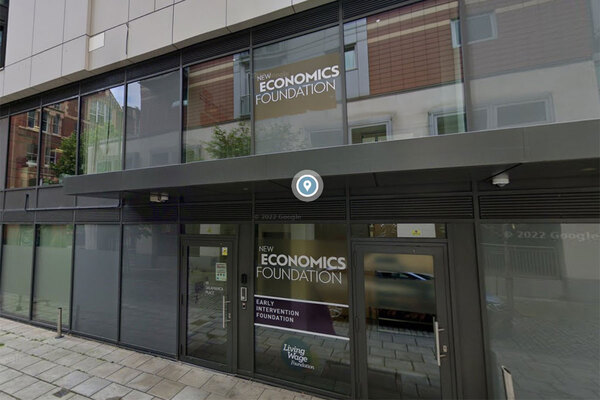You are viewing 1 of your 1 free articles
In full: ministerial foreword to the supported housing consultations
We re-produce in full the ministerial foreword to consultation documents published today outlining plans for the funding of supported housing
The government has today published two consultations on supported housing funding. One on costs for extra care and sheltered accommodation and one on short-term supported accommodation.
This includes plans for a ‘sheltered rent’, which the government says will reflect the higher costs of housing older or vulnerable people.
Below is the full text of the foreword to the consultation document, by Marcus Jones, minister for local government, and Caroline Dinenage, parliamentary under secretary of state for family support, housing and child maintenance.
Ministerial foreword in full:
“Supporting the most vulnerable people in our society is a priority for the government, and we value the important role that supported housing plays.
We are committed to protecting and boosting the supply of supported housing. It is also an integral part of the wider social housing sector, which we will be reviewing through the upcoming Social Housing Green Paper.
We recognise that we need to make some changes to the way in which supported housing is funded. Local areas don’t have sufficient control or oversight of provision and it is not always possible to ensure value for money for tenants or the taxpayer.
As demand for help to live independently grows, we also need a funding model that is fit for the future and can support the delivery of new much-needed supply as well as making best use of existing supported homes.
“We are bringing forward a flexible funding approach that works for this very diverse sector.”
In the Autumn Statement 2015, we announced our intention to apply the Local Housing Allowance rates to social rents, including supported housing, with effect from 2018.
The implementation date was subsequently deferred to April 2019. Since then, we have listened carefully to the concerns raised by the social housing sector and other key stakeholders about the issues that this measure would present.
As the prime minister has recently announced, in response to those concerns the government will not apply the Local Housing Allowance rates to tenants in supported housing, nor to the wider social rented sector.
Last year we also committed to reform the funding of housing costs for supported housing. Since then we have worked with many from the supported housing sector (including providers, local authorities, charities and academics) to develop a fully sustainable funding model.
“A one-size-fits-all approach will not work and our new funding regime is tailored to the three main types of supported housing.”
We are pleased to announce today that we have heard their views and concerns, and we are bringing forward a flexible funding approach that works for this very diverse sector.
What has been clear through our conversations is that a one-size-fits-all approach will not work and our new funding regime is tailored to the three main types of supported housing:
- Sheltered and extra care housing (usually designated for older people, but including some working-age tenants)
- Short-term supported housing (for those in crisis, such as those fleeing domestic violence and homeless people with support needs, or shorter-term transitional help for those with substance misuse problems or vulnerable young people, such as care leavers)
- Long-term housing (for those with long-term needs, such as people with learning or physical disabilities, or mental ill health)
Sheltered housing and extra care will continue to be funded in the welfare system, and we will be introducing a ‘sheltered rent’ from April 2020, a type of social rent that recognises the vital role that these homes play in supporting older and vulnerable people and acknowledges the higher costs of these types of housing compared to general needs housing.
This will see gross eligible rent (rent inclusive of eligible service charges) regulated by the social housing regulator.
“Short-term supported housing will be funded through a new ringfenced grant to local authorities in England.”
We will set appropriate rates for sheltered and extra care housing costs, established in consultation with the sector.
Welfare arrangements for people living in all types of supported housing will apply across Great Britain, but rent policy is a devolved matter for the Scottish and Welsh governments.
Short-term supported housing will be funded through a new ringfenced grant to local authorities in England.
The government recognises that supported housing is of vital importance to vulnerable people, so it is our intention that this ringfence will be retained in the long term in order to protect this important provision and the vulnerable people it supports.
The amount of short-term supported housing grant funding will be set on the basis of current projections of future need (as informed by discussions with local authorities) and will continue to take account of the costs of provision in this part of the sector.
In Wales and Scotland, an equivalent amount will be provided and it will be for those administrations to decide how best to allocate funding.
Long-term supported housing will remain funded via the welfare system, as it is currently.
READ MORE ABOUT THERESA MAY’S DECISION TO SCRAP THE LHA CAP FOR SOCIAL HOUSING
While this provision will continue to be funded by the welfare system, we will work with the sector to manage costs and ensure the best outcomes for tenants, while providing the sector with the certainty of future funding that it needs.
We are also seeking to improve local planning for supported housing and commissioning across service areas and have set out proposals for a National Statement of Expectation and local level strategic planning to underpin the new funding regime.
This will support better, joined-up working across local areas to deliver the best outcomes for vulnerable people, to ensure that public funding is being used effectively and efficiently, and to plan for new supply to meet future demands.
These important and necessary changes will take time to implement, and it is crucial that the support provided to people is not interrupted or put in doubt, which is why these changes will now commence from April 2020 rather than April 2019.
It is our aim through making these changes to provide funding security to providers by allowing them to make long-term investment decisions and therefore secure future supply.
These changes will also ensure value for money for the taxpayer, enable councils to have a stronger role in providing appropriately for their local areas, and support better outcomes for tenants. We are keen to ensure our proposals will work for the sector and welcome your views in the two consultations launched today.
“It is our aim through making these changes to provide funding security to providers by allowing them to make long-term investment decisions and therefore secure future supply.”
We have also considered the important role of refuges and calls from some of the sector to nationalise the funding and commissioning of this.
The government was clear in its strategy to end violence against women and girls that refuges provide a vital service.
We appreciate the need for certainty and we strongly believe that a local approach will ensure the best outcomes for vulnerable renters in crisis and emergency supported housing.
Local authorities are best placed to understand and meet local needs, and to take a holistic view on both housing and support provision.
The government has already committed (in the 2016/20 strategy to end violence against women and girls) to review the current approach to refuge provision in England by November 2018.
We will need to pay particular attention to the funding of care and support costs as we do this, and will continue to work closely with this sector to make good our commitment.
It is vital that we continue to support the most vulnerable in our society, and have a sustainable supported housing sector which is fit for the future, providing value for money for those that pay for it and, most importantly, positive outcomes for those who call it home.”
Marcus Jones, minister for local government, and Caroline Dinenage, parliamentary under secretary of state for family support, housing and child maintenance









